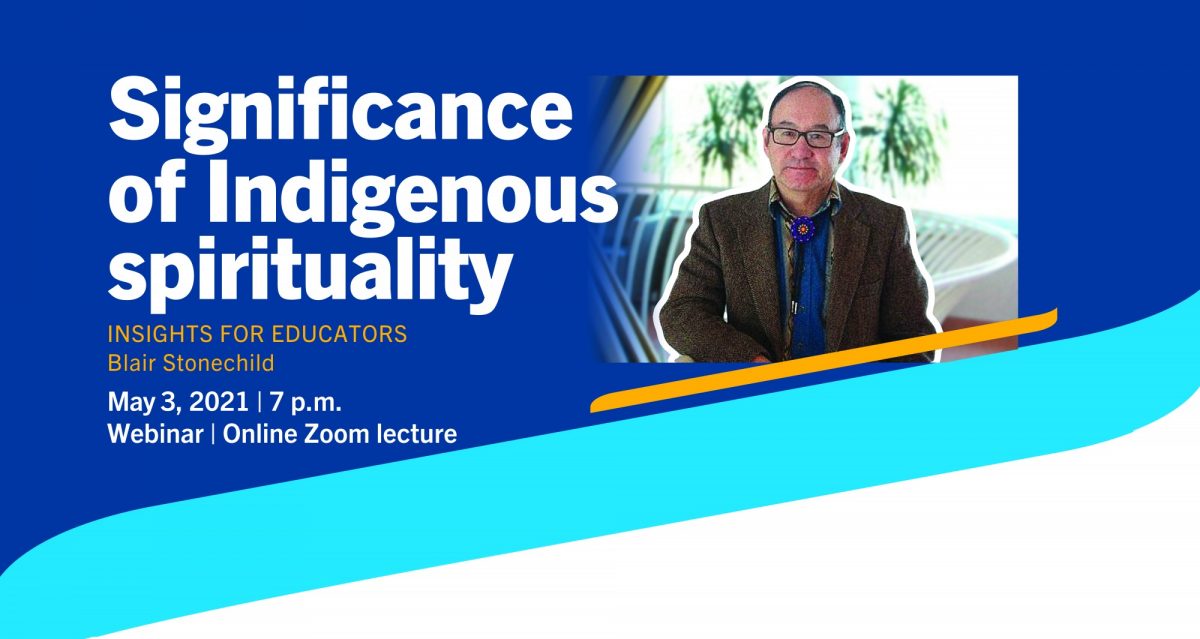
Prof. Stonechild's topic of his May 3 lecture is "The Significance of Spirituality." Links to registration in the story.
‘A higher intelligence’
Spirituality essential to development of Indigenous youth: Prof. Stonechild
Including spirituality in the classroom is essential to the development of Indigenous youth, says Prof. Blair Stonechild.
In Indigenous culture, spirituality is valued as a higher form of intelligence, he says. This compares to other cultures that prize the supremacy of intellectual rationalism.
‘We can develop, not only productive citizens, but also develop citizens who are spiritually and morally mature.’
“Some people see Indigenous spirituality as something that’s anti-progress,” Stonechild says, countering that including a wholistic “spiritual protocol” to scientific and technological inquiry adds a depth of understanding to intellectual pursuits.
“We can develop, not only productive citizens, but also develop citizens who are spiritually and morally mature.”
Stonechild, guest speaker at this year’s fourth Dean’s Distinguished Lecture on May 3, was the first faculty hired at Regina’s First Nation’s University in 1976. He has since authored several books, including The Knowledge Seeker: Embracing Indigenous Spirituality, as well as Loss of Indigenous Eden and the Fall of Spirituality. His topic for next Monday’s lecture is “The Significance of Indigenous Spirituality.”
Reverence and respect
After encountering many challenges, the issue has emerged to prominence in recent years, decades following the decline of the assimilation period. Experiences with residential schools left a distrust of the education system. Throughout the ’70s-’80s, history, culture and rights dominated the agenda. And while elders hold a variety of opinions on Indigenous spirituality in the classroom, Stonechild says they all agree that the subject should be approached with reverence and respect.
“There are protocols. For example, if I am teaching about Indigenous spirituality, I would open the teaching process with a prayer,” Stonechild says, adding that if students want to explore beyond the principles of Indigenous spirituality, elders could provide access to ceremonies such as a sweat-lodge outside of a classroom.
Stonechild approaches Indigenous spirituality in schools with a sense of urgency—especially in provinces like Manitoba, which has Canada’s largest Aboriginal population, and growing.
“It’s urgent to talk about it because of the lack of knowledge—especially Indigenous youth in urban centres, growing up without any inkling of what this spirituality is about,” Stonechild says.
What: The Significance of Indigenous Spirituality
When: Monday, May 3, 2021
Time: 7:00 p.m.
Register for the Zoom lecture here
For more information, contact:
Charlie McDougall, communications coordinator, Faculty of Education, Charlie [dot] McDougall [at] umanitoba [dot] ca






